Kara Krauze founded Voices From War in 2013 and teaches literature and writing in the workshop for veterans, along with writer Nathan Bradley Bethea, a veteran of the war in Afghanistan. Krauze has worked in publishing, the mental health field, and community organizing. A writer of fiction and creative nonfiction, her work has been published in Quarterly West, Center: A Journal of the Literary Arts, Highbrow Magazine, the Daily Beast, Hypothetical Review, the Los Angeles Review of Books, and elsewhere. Krauze holds a BA from Vassar College in International Studies and a MA in Literary Cultures from New York University. Voices From War offers writing workshops for veterans and related literary programming.
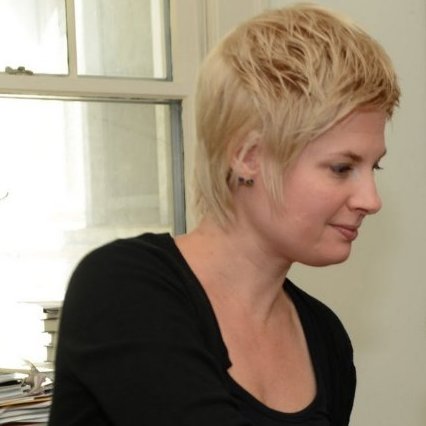 I’ve been thinking of Virginia Woolf and her “moments of being,” the captured experiences and memories that press up, suddenly intense and vivid, and the “room of one’s own” she argued for as a necessary space to write (and of course there is her call for an income to make it possible—five hundred pounds, was it?). Mostly, I have thought of this space as literal. In New York City, perhaps not a whole room in our cramped living quarters, but at least a corner. Right now I’m thinking of the room where the Voices From War workshop meets, not in an apartment, not tucked away, but in a community center at the 14th Street Y in New York City. Instead of an empty room for solitude, the physical space is populated. Around the table are veterans from multiple generations, mostly men, a woman or two. Mark the participants’ ages and then the decades, and we can unpeel eras of war: Iraq and Afghanistan, Vietnam, Korea. A lot of unknowns within a wide array of experiences, even among those with commonalities. But the space is shared and everyone has stories, some of which they will write about.
I’ve been thinking of Virginia Woolf and her “moments of being,” the captured experiences and memories that press up, suddenly intense and vivid, and the “room of one’s own” she argued for as a necessary space to write (and of course there is her call for an income to make it possible—five hundred pounds, was it?). Mostly, I have thought of this space as literal. In New York City, perhaps not a whole room in our cramped living quarters, but at least a corner. Right now I’m thinking of the room where the Voices From War workshop meets, not in an apartment, not tucked away, but in a community center at the 14th Street Y in New York City. Instead of an empty room for solitude, the physical space is populated. Around the table are veterans from multiple generations, mostly men, a woman or two. Mark the participants’ ages and then the decades, and we can unpeel eras of war: Iraq and Afghanistan, Vietnam, Korea. A lot of unknowns within a wide array of experiences, even among those with commonalities. But the space is shared and everyone has stories, some of which they will write about.
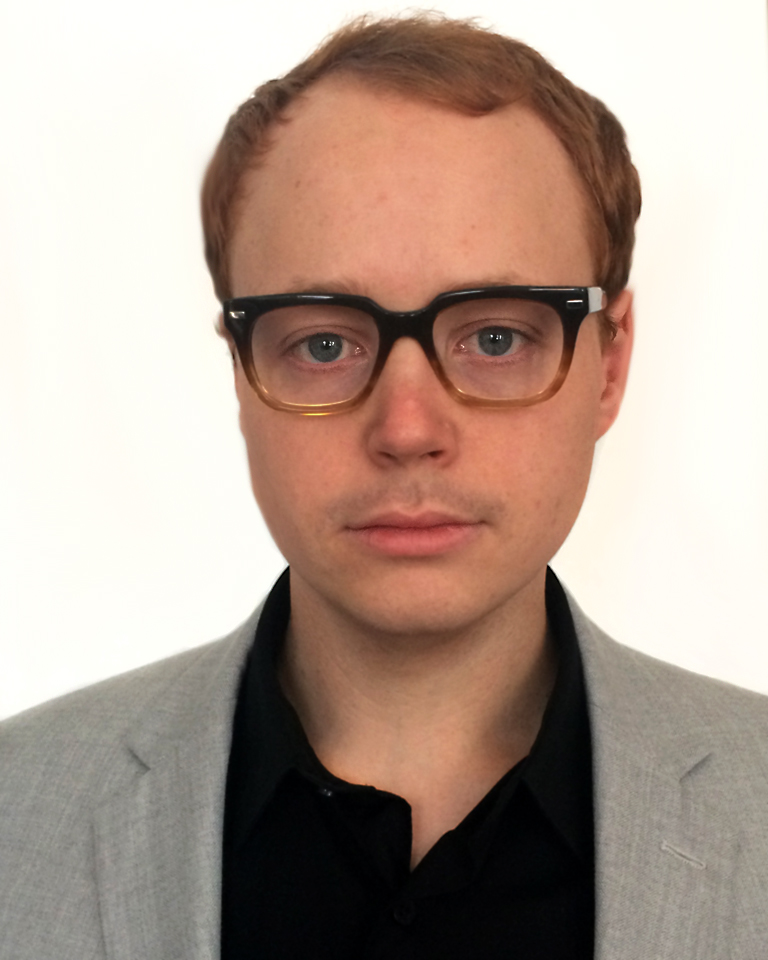 This has become more important to me than I expected, more important than I can even understand. These writers and their stories are the tiles in the mosaic of our history. Stories not yet written, stories (factual or fiction) not fully formed until they arrive from their authors on paper, later edited, shared, and revisited.
This has become more important to me than I expected, more important than I can even understand. These writers and their stories are the tiles in the mosaic of our history. Stories not yet written, stories (factual or fiction) not fully formed until they arrive from their authors on paper, later edited, shared, and revisited.
I’ve never been in an active war zone. I’ve never held a gun—a sentence that falls far short of the stories, absences, and significant details lurking behind its assertion. But when a student writes of wishing to cradle an M-5, I know just what he means. In the middle of that sentence—the words buoying the gun, holding it—I might have been writing about one of my babies, my children.
This is what I mean about the room: Virginia Woolf’s room, the room in our New York City East Village community center, a preschool by day (that a few years ago my own two boys attended) and now where veterans of varied ages and experiences (before, during, and after war) meet with me and my coteacher, Nate. Nate, who was deployed to Afghanistan and was posted in South Korea, is just one thread running quietly through the room—a fifty-year gap between instructor and the workshop participant who served there during his war. The room is a space we’ve made. We remake it each week, pushing away the noise of the outside world.
Many individuals and key institutions help create that shared room with its white walls and empty space that suddenly fill with people, fill with words. The wonderful supporters at the 14th Street Y who understood and understand why this class matters. All of the participants in the workshop—from our start in season one in fall 2013, to this latest group, both returning and new, as we begin season four.
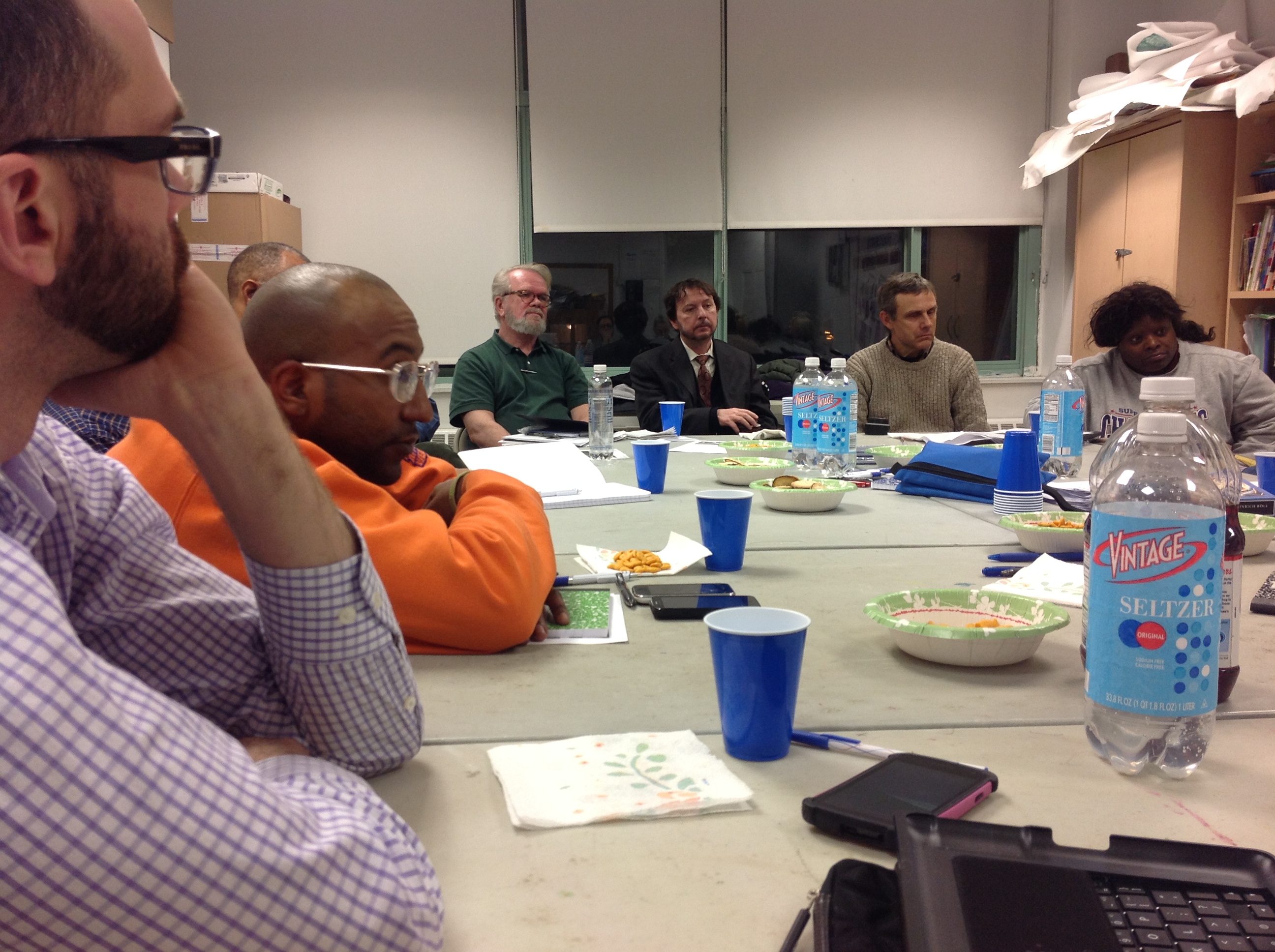
I am continually amazed, impressed, humbled, and educated by the individuals who have given their service in complex times and places, and who continue to serve in multiple ways. Jacob Siegel, a talented writer and veteran, helped launch seasons one and two. Nathan Bradley Bethea, who was a coteacher in season three, continues to share his insightful analysis and exceptional craft now teaching in season four. Designer eperez gave visual representation to Voices From War by designing our logo. The two smallest members of my family continue to teach me why and why not with their Lego battles on the floor, the toy soldiers on their desk, and in bed with their stories, still shielded from the all too real blood in the world.
A huge thank you to Poets & Writers, an invaluable supporter from our first workshop, for advocating again and again for writers and readers, for veterans, for voices shaping their stories and waiting to be heard. Poets & Writers and the 14th Street Y in Manhattan’s East Village give us the physical room that creates the interior room—a space of community, of voices shared that lift each other up and care for their words. These stories matter.
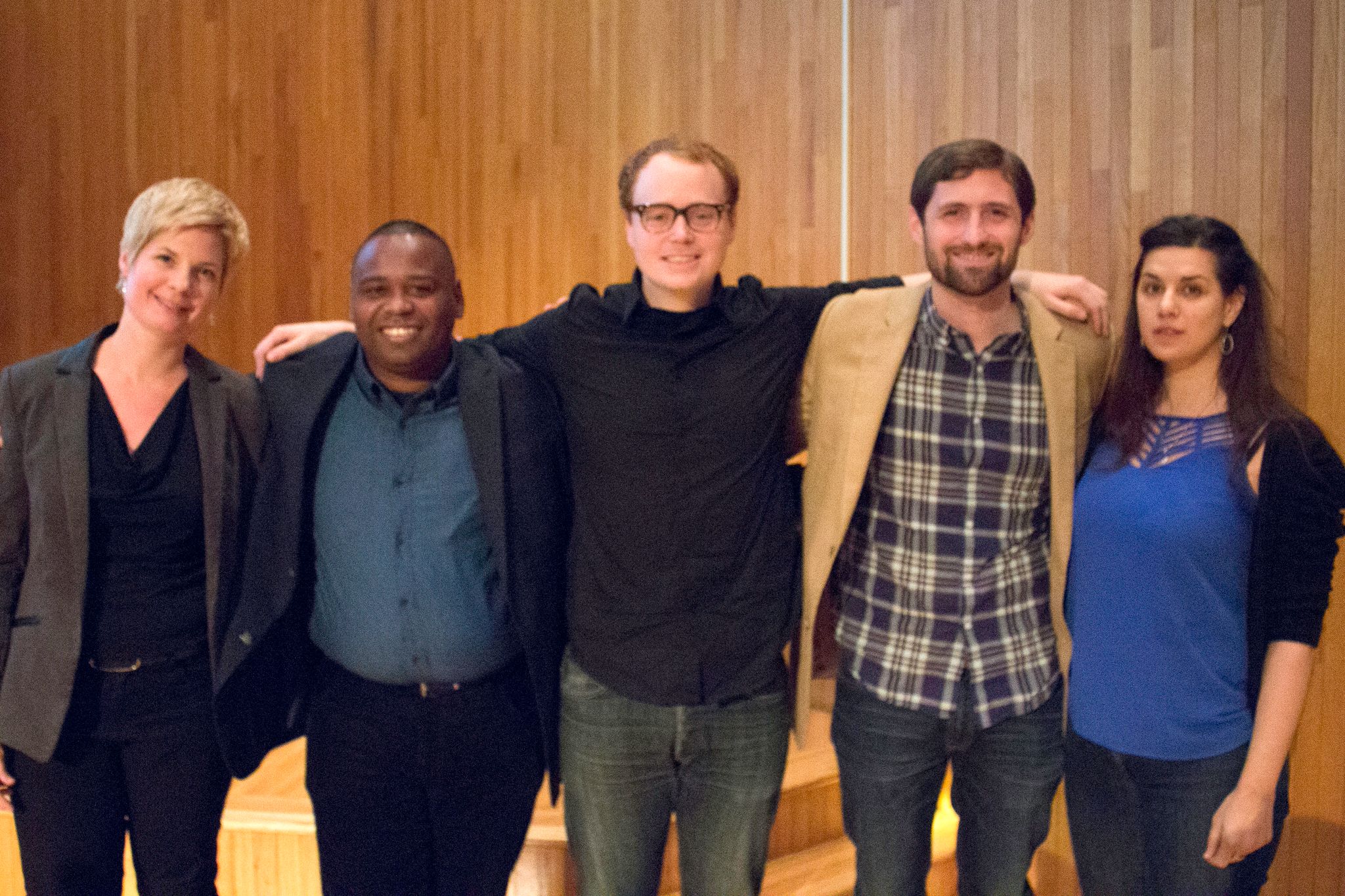
Photo (top): Kara Krauze, coteacher of Voices From War. Photo Credit: James Burry
Photo (right): Nathan Bradley Bethea, coteacher of Voices From War. Photo Credit: Yoonkyung Lim
Photo (middle): Voices From War classroom photo. Photo Credit: Nathan Bradley Bethea
Photo (bottom): Group photo from the Voices From War "Literary Showcase" event with Veteran Artist Program.
Support for Readings & Workshops in New York City is provided, in part, by public funds from the New York State Council on the Arts, and the New York City Department of Cultural Affairs, with additional support from the Louis & Anne Abrons Foundation, the Axe-Houghton Foundation, A.K. Starr Charitable Trust and Friends of Poets & Writers.





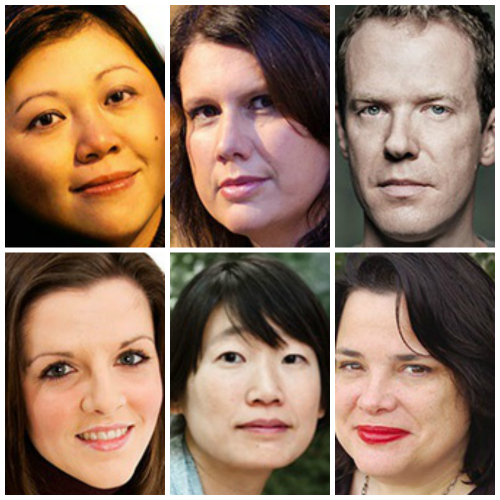 This year’s shortlisted stories are
This year’s shortlisted stories are  I’ve been thinking of Virginia Woolf and her “moments of being,” the captured experiences and memories that press up, suddenly intense and vivid, and the “room of one’s own” she argued for as a necessary space to write (and of course there is her call for an income to make it possible—five hundred pounds, was it?). Mostly, I have thought of this space as literal. In New York City, perhaps not a whole room in our cramped living quarters, but at least a corner. Right now I’m thinking of the room where the Voices From War workshop meets, not in an apartment, not tucked away, but in a community center at the 14th Street Y in New York City. Instead of an empty room for solitude, the physical space is populated. Around the table are veterans from multiple generations, mostly men, a woman or two. Mark the participants’ ages and then the decades, and we can unpeel eras of war: Iraq and Afghanistan, Vietnam, Korea. A lot of unknowns within a wide array of experiences, even among those with commonalities. But the space is shared and everyone has stories, some of which they will write about.
I’ve been thinking of Virginia Woolf and her “moments of being,” the captured experiences and memories that press up, suddenly intense and vivid, and the “room of one’s own” she argued for as a necessary space to write (and of course there is her call for an income to make it possible—five hundred pounds, was it?). Mostly, I have thought of this space as literal. In New York City, perhaps not a whole room in our cramped living quarters, but at least a corner. Right now I’m thinking of the room where the Voices From War workshop meets, not in an apartment, not tucked away, but in a community center at the 14th Street Y in New York City. Instead of an empty room for solitude, the physical space is populated. Around the table are veterans from multiple generations, mostly men, a woman or two. Mark the participants’ ages and then the decades, and we can unpeel eras of war: Iraq and Afghanistan, Vietnam, Korea. A lot of unknowns within a wide array of experiences, even among those with commonalities. But the space is shared and everyone has stories, some of which they will write about. This has become more important to me than I expected, more important than I can even understand. These writers and their stories are the tiles in the mosaic of our history. Stories not yet written, stories (factual or fiction) not fully formed until they arrive from their authors on paper, later edited, shared, and revisited.
This has become more important to me than I expected, more important than I can even understand. These writers and their stories are the tiles in the mosaic of our history. Stories not yet written, stories (factual or fiction) not fully formed until they arrive from their authors on paper, later edited, shared, and revisited.


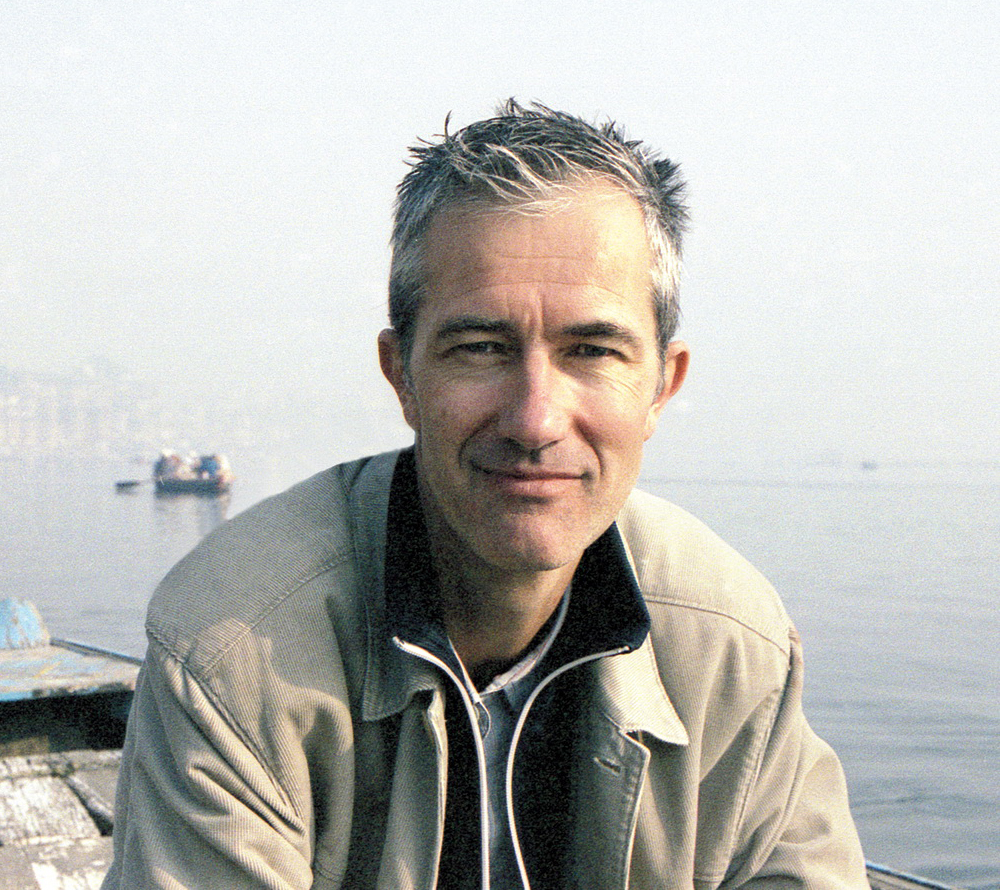
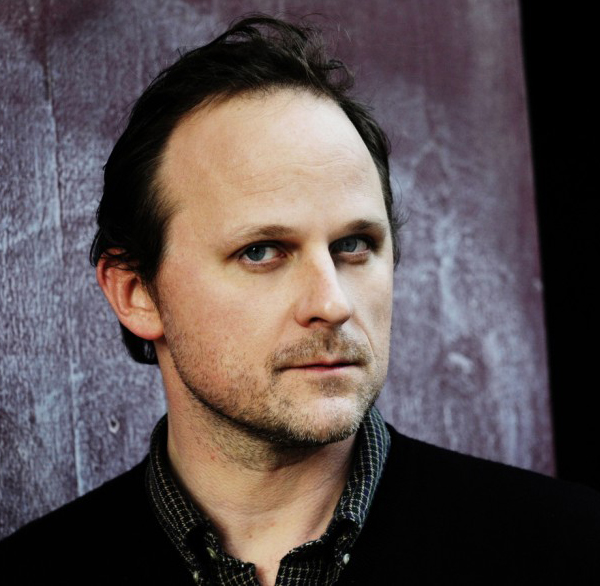 The Windham Campbell Prizes were established in 2013 by Donald Windham and Sandy M. Campbell to call attention to literary achievement and provide writers with the opportunity to focus on their work independent of financial concerns. There is no submission process, and winners are determined by an international group of invited nominators, a jury in each category, and an anonymous selection committee.
The Windham Campbell Prizes were established in 2013 by Donald Windham and Sandy M. Campbell to call attention to literary achievement and provide writers with the opportunity to focus on their work independent of financial concerns. There is no submission process, and winners are determined by an international group of invited nominators, a jury in each category, and an anonymous selection committee.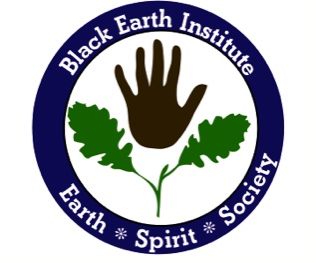
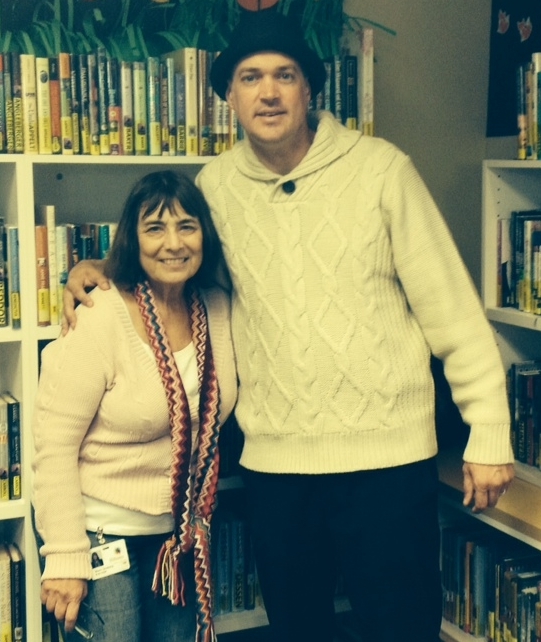
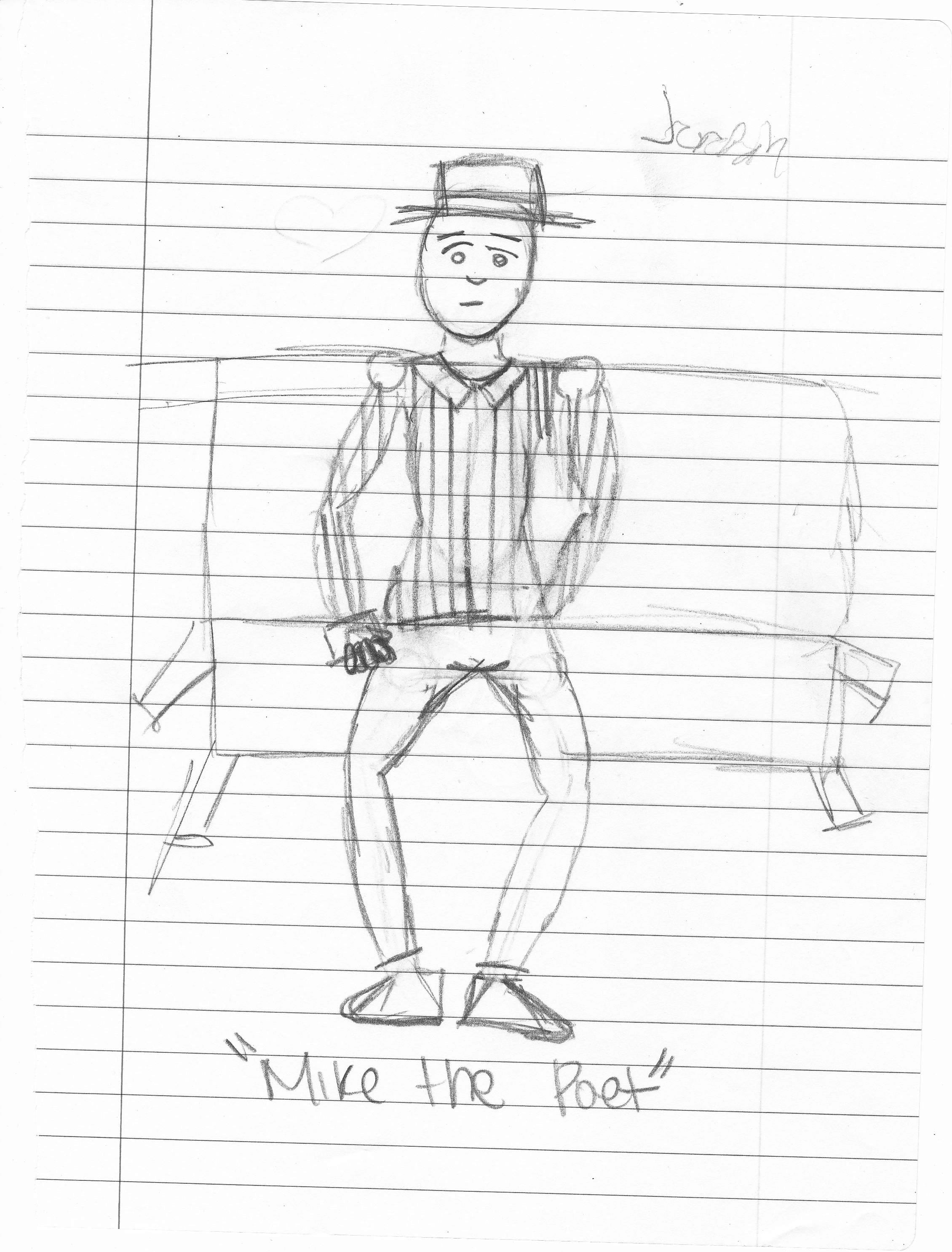 If I was invisible
If I was invisible